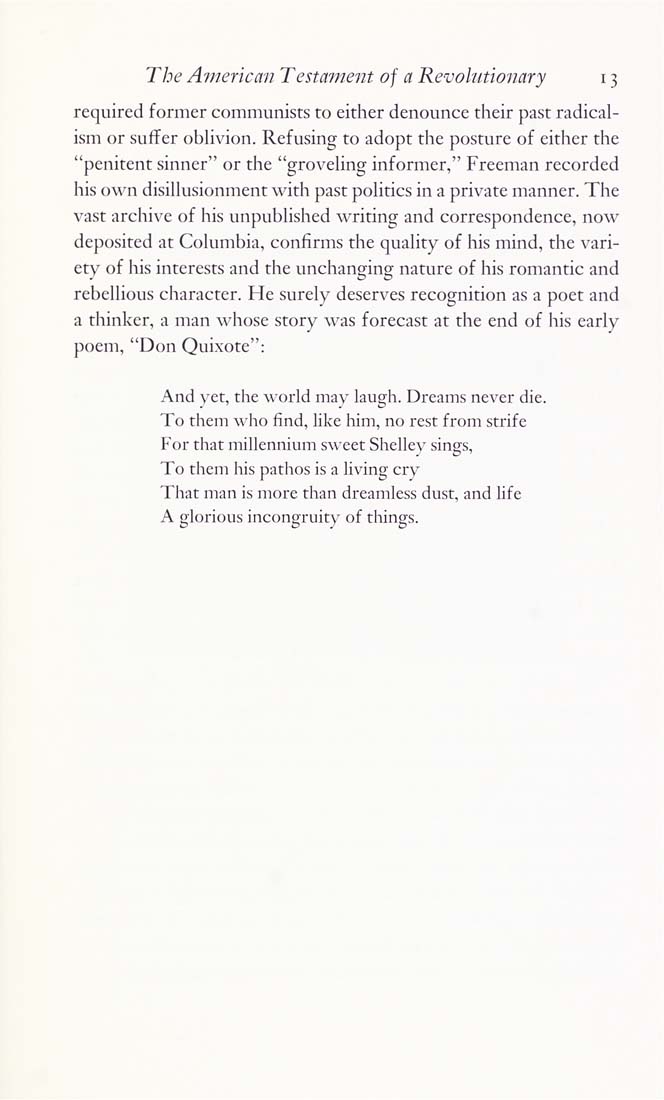Columbia Library columns (v.27(1977Nov-1978May))
(New York : Friends of the Columbia Libraries. )
|
||
|
|
|
|
| v.27,no.2(1978:Feb): Page 13 |

The American Testament of a Revolutionary 13 required former communists to either denounce their past radical¬ ism or suffer oblivion. Refusing to adopt the postute of either the "penitent sinner" or the "groveling informer," Freeman recorded his own disillusionment with past politics in a private manner. The vast archive of his unpublished writing and correspondence, now deposited at Columbia, confirms the quality of his mind, the vari¬ ety of his interests and the unchanging nature of his romantic and rebellious character. He surely deserves recognition as a poet and a thinker, a man whose story was forecast at the end of liis early poem, "Don Quixote": And yet, the world may laugh. Dreams never die. To them who find, like him, no rest from strife For that millennium .sweet Shelley sings. To them his pathos is a living cry That man is more than dreamless dust, and life A glorious incongruity of things. |
| v.27,no.2(1978:Feb): Page 13 |







